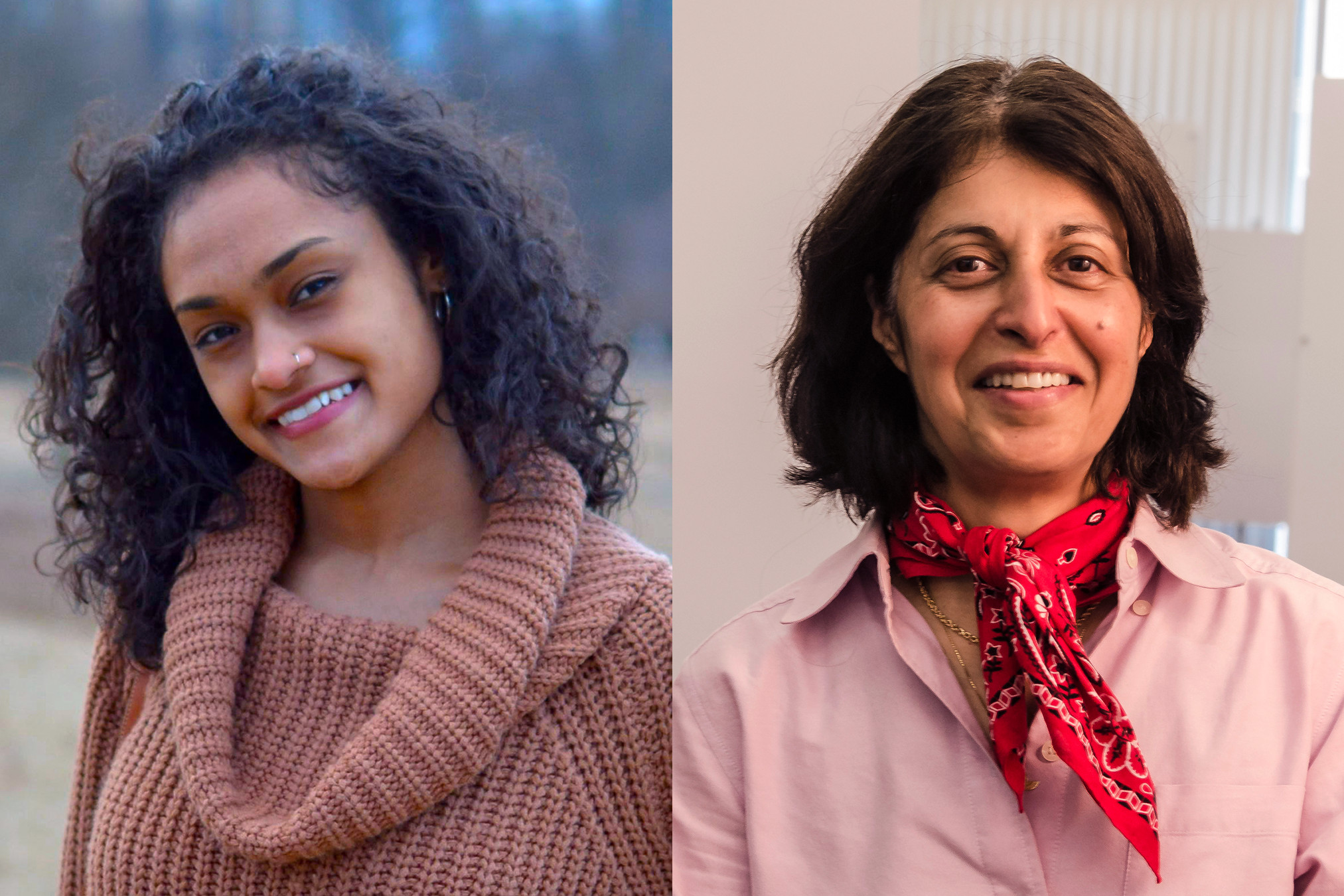3 Questions: Sheena Vasquez and Mandana Sassanfar on building an outreach initiative from scratch
Graduate student and outreach director discuss efforts by the Department of Biology’s faculty, students, and staff to engage local community college students in scientific research.

On June 10 of last year, MIT’s Department of Biology took the day to engage in open conversations about racial bias, diversity, and inclusion in support of the #ShutDownSTEM national initiative. These discussions spurred students, faculty, and staff to come together and form their own initiative. Known as the Community College Partnership, this program hopes to develop strong ties with local community colleges that are within commuting distance and serve diverse, nontraditional students — in order to increase access to MIT’s on-site and online resources.
The department’s existing outreach programs — including the MIT Summer Research Program in Biology (MSRP-Bio), Quantitative Methods Workshop (QMW), and LEAH Knox Scholars Program — engage local high school students and non-MIT undergraduates from historically underrepresented groups in science. However, as of last year, the department had no research training opportunities geared toward community college students. The Community College Partnership is filling this gap by organizing virtual career panels, workshops, and seminars for students from Bunker Hill Community College and Roxbury Community College. In doing so, the initiative aims to encourage community college students from the Boston area to participate in additional MIT research opportunities, such as MSRP-Bio and QMW. Graduate student Sheena Vasquez, who spearheaded this initiative, and Mandana Sassanfar, the department’s director of outreach, sat down to discuss building a new program from scratch and how to plan for long-term success.
Q: What was your impetus for creating a program geared toward community college outreach?
Vasquez: I consider community college outreach very important for personal reasons. Back when I was applying to college, I couldn’t afford to attend a traditional four-year institution. I was also unsure what I wanted to major in, and I needed to stay close to home to take care of my family. I attended Georgia Perimeter College — a two-year community college — before transferring to the University of Georgia to finish my bachelor's degree. I was able to participate in programs funded by the National Science Foundation, which led me to MIT for several summers as part of MSRP-Bio.
Looking back, I don't think I would be a biology graduate student today if I hadn't attended a community college. It also allowed me to see firsthand the talent, drive, and diversity at community colleges. And yet, at times these students are overlooked and underestimated by the general public. After our #ShutDownSTEM event last summer, it seemed like an ideal time to start engaging local community colleges in MIT’s biology research.
Sassanfar: I agree. It was by admitting bright students like Sheena to programs like MSRP that I realized the lack of initiatives aimed at community colleges. #ShutDownSTEM generated the energy and interest we needed to finally catalyze something like this. It was the missing link.
Q: What are the goals of the program, and how will you measure success?
Sassanfar: Our goals are twofold. First, we want to ensure that these students go far and reach their career goals — and possibly discover new goals that they didn’t realize were possible. Second, we hope to educate our own MIT community about the community college population, and build long-lasting relationships. This way, everyone will benefit.
Vasquez: We’ll be able to gauge the strength of these budding relationships by tracking how many students go on to participate in MSRP-Bio, QMW, and other rigorous research opportunities after attending our events. We also hope to create a team of graduate student mentors who can offer their expertise in grant writing and applying to graduate or other post-secondary schools.
Q: What challenges have you had to overcome in order to launch an outreach program aimed at a new community? How have you surmounted these difficulties?
Vasquez: The first challenge we faced was figuring out which community colleges to reach out to, and establishing points of contact there. We connected with Bunker Hill Community College first because of the diversity of students that attend. In addition, they had an active diversity, equity, and inclusion office, but no formal relationship with MIT Biology yet.
The next challenge was figuring out how to teach lab techniques virtually during our four-day workshop. We experimented with several different platforms before settling on Zoom. We also ended up sharing video recordings of ourselves in lab, and included tutorials on open-source software such as SnapGene and PyMOL — which allowed students to try their hand at procedures like DNA cloning, PCR, and interpreting protein structures. We asked everyone to fill out a survey at the very end, and 82 percent said they enjoyed the workshop and gained new skills. Ninety-six percent said they’d be interested in learning more about applying to graduate school, and some students have even reached out to us individually to continue the discussion.
Sassanfar: As Sheena alluded to, we’ve learned over the years that the secret to success is finding at least one faculty member or administrator at the other institution who is equally passionate about forming a partnership. In the case of Roxbury Community College, it took one meeting with a handful of faculty members to identify a professor who was willing to help make things happen. We do our part and they do their part; there has to be seamless communication.
My last piece of advice is that it’s vital for an outreach initiative to be focused. Go for depth, not breadth. It would be impossible to engage all community colleges in the greater Boston area. Instead, we are working hard to form strong relationships with a few in particular. That’s essential to creating something that’s long-lasting.





































